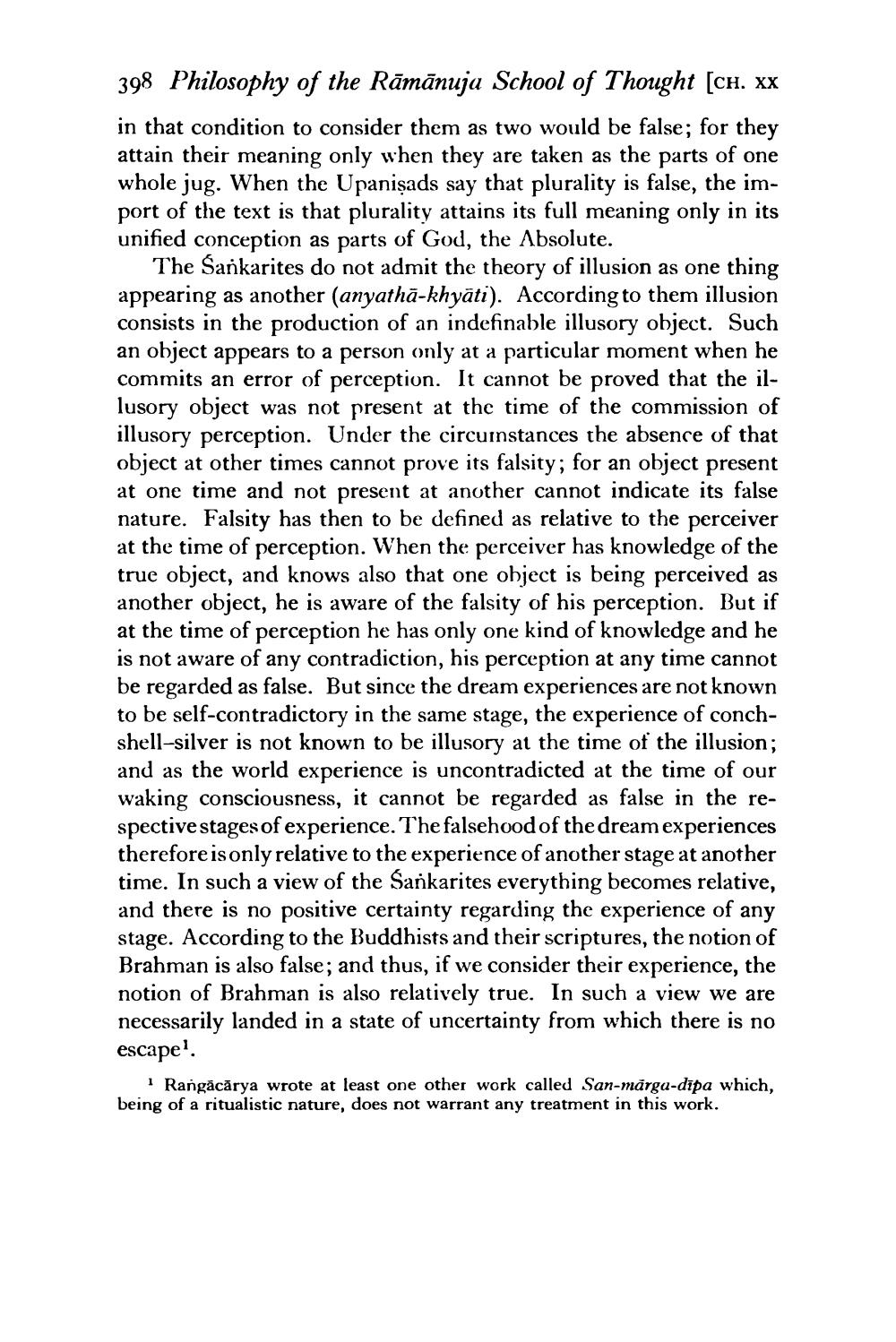________________
398 Philosophy of the Rāmānuja School of Thought [CH. XX in that condition to consider them as two would be false; for they attain their meaning only when they are taken as the parts of one whole jug. When the Upanişads say that plurality is false, the import of the text is that plurality attains its full meaning only in its unified conception as parts of God, the Absolute.
The Sankarites do not admit the theory of illusion as one thing appearing as another (anyathā-khyāti). According to them illusion consists in the production of an indefinable illusory object. Such an object appears to a person only at a particular moment when he commits an error of perception. It cannot be proved that the illusory object was not present at the time of the commission of illusory perception. Under the circunstances the absence of that object at other times cannot prove its falsity; for an object present at one time and not present at another cannot indicate its false nature. Falsity has then to be defined as relative to the perceiver at the time of perception. When the perceiver has knowledge of the true object, and knows also that one object is being perceived as another object, he is aware of the falsity of his perception. But if at the time of perception he has only one kind of knowledge and he is not aware of any contradiction, his perception at any time cannot be regarded as false. But since the dream experiences are not known to be self-contradictory in the same stage, the experience of conchshell-silver is not known to be illusory at the time of the illusion; and as the world experience is uncontradicted at the time of our waking consciousness, it cannot be regarded as false in the respective stages of experience. The falsehood of the dream experiences therefore is only relative to the experience of another stage at another time. In such a view of the Sankarites everything becomes relative, and there is no positive certainty regarding the experience of any stage. According to the Buddhists and their scriptures, the notion of Brahman is also false; and thus, if we consider their experience, the notion of Brahman is also relatively true. In such a view we are necessarily landed in a state of uncertainty from which there is no escape'.
1 Rangācārya wrote at least one other work called San-mărga-dīpa which, being of a ritualistic nature, does not warrant any treatment in this work.




